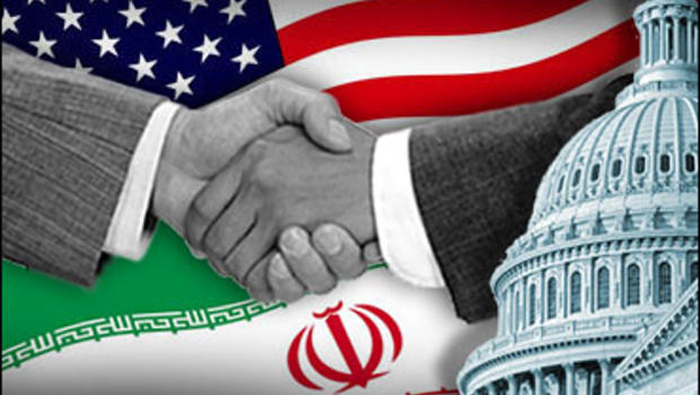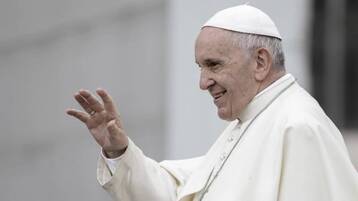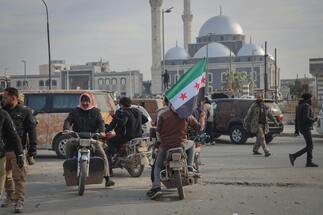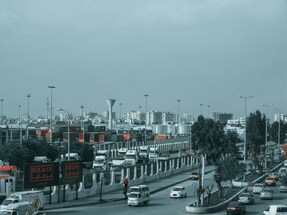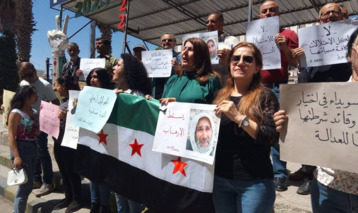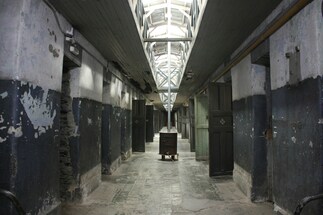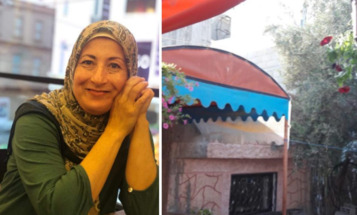-
Mostly Turkestan... Foreign Fighters Assume Security Tasks in Rural Homs
-
The arrival of foreign elements to an area of community sensitivity points to major challenges that may face the model of sectarian coexistence in Syria, necessitating the adoption of a model that gua
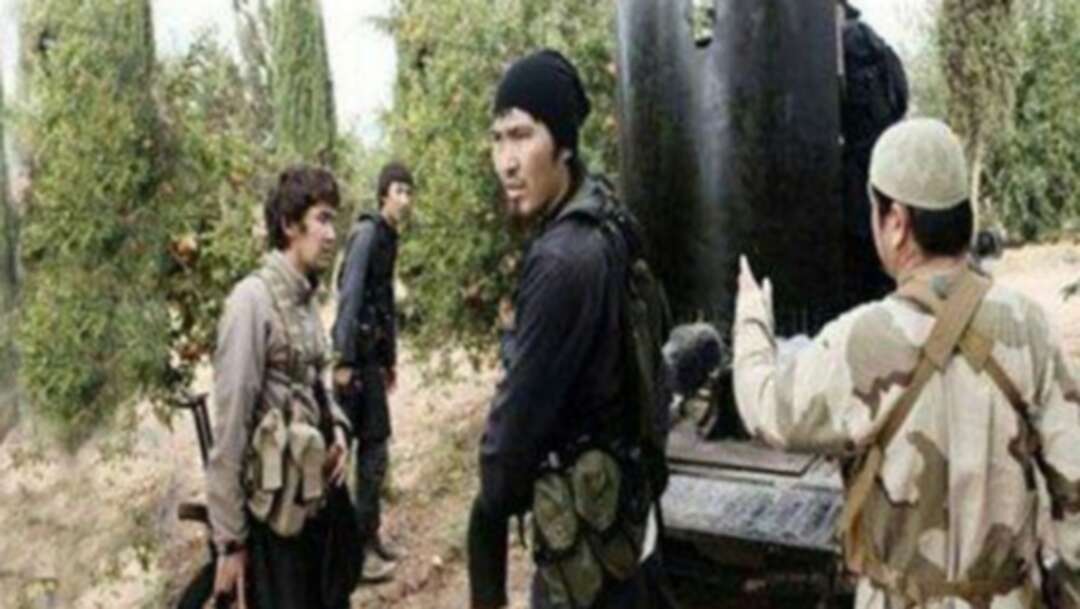
Reliable sources for the Syrian Observatory for Human Rights in Homs revealed the arrival of a new group of foreign armed men supporting the new Syrian administration to the Radar Battalion site in the strategically important Dahr al-Qusayr area in western rural Homs, a few days ago, coinciding with the issuance of directives imposing the withdrawal of General Security elements from the area and handing over their responsibilities to the incoming forces.
The Syrian Observatory activists emphasized the arrival of about 30 elements of various nationalities, mostly Turkestan, to the Radar Hill in Dahr al-Qusayr, amid reports of them taking on the task of securing the area, following violations by General Security elements (from new affiliates) against members of the Alawite sect in the adjacent surroundings.
Meanwhile, it is difficult to adapt to the presence of nationalities that do not speak Arabic, in addition to the religious extremism known among Chechen and Turkestan fighters, and their hostility toward members of other components.
It should be noted that the majority of the Alawite component residing in the mountains of western rural Homs have their daily living confined to their villages only, with most of them unable to move as usual between the countryside and the city, which has led to an economic and living crisis for them, especially in light of their continued disconnection from their jobs from which their services were terminated by an official decision from the Syrian Interim Caretaker Government.
These developments confirm the importance of adopting a governance model that guarantees the rights of all community components and protects their specificity, away from the policies of exclusion and marginalization that were prevalent under the previous regime headed by Bashar al-Assad.
Analysts point out that the continuation of policies restricting freedoms and movement for different community components reproduces the same mistakes committed by the previous regime, which led to the concentration of power and wealth in the hands of a limited group at the expense of the rest of the components of Syrian society.
You May Also Like
Popular Posts
Caricature
BENEFIT Sponsors Gulf Uni...
- April 17, 2025
BENEFIT, the Kingdom’s innovator and leading company in Fintech and electronic financial transactions service, has announced its sponsorship of the “Innovation and Sustainable Technology Solutions Competition (GU - IST Solutions), hosted by Gulf University at its main campus.
This strategic sponsorship reflects BENEFIT’s active role in advancing technological innovation and fostering sustainable solutions to future challenges. It also seeks to empower Bahraini youth by enhancing their skills, capabilities, and competitiveness in innovation and solution development—contributing meaningfully to the broader goals of sustainable development across all sectors.
As part of BENEFIT’s active involvement in the competition, the company has announced that Hanan Abdulla Hasan, Senior Manager of Public Relations and Communication, will serve on the competition’s supervisory committee. Her upcoming participation reflects BENEFIT’s forward-looking commitment to championing academic and professional excellence.
Commenting on the occasion, Hanan Abdulla Hasan, Senior Manager of Public Relations and Communication at BENEFIT, said, “We are privileged to support this pioneering initiative, which aligns seamlessly with BENEFIT’s enduring commitment to fostering innovation and nurturing the potential of Bahrain’s youth. Our participation is rooted in a deep sense of social responsibility and a firm belief in the pivotal role of innovation in shaping a sustainable future. Through such platforms, we seek to empower the next generation with the knowledge, skills, and foresight required to develop impactful solutions that address future challenges, in line with the United Nations Sustainable Development Goals 2030.”
Dr. Aseel Al Ayash Dean of the College of Engineering in Gulf University commented, “We extend our sincere gratitude to BENEFIT for their generous sponsorship and support of the Innovation and Sustainable Technology Solutions Competition. This contribution plays an instrumental role in helping us achieve the strategic goals of this initiative, namely, cultivating a culture of innovation and sustainability, encouraging efforts that address the imperatives of sustainable development, and enhancing the practical and professional capabilities of our students and participants.”
The event will bring together a diverse spectrum of participants, including secondary school students, university undergraduates, engineers, industry professionals, entrepreneurs, academic researchers, and subject matter experts representing a wide range of disciplines.
The competition seeks to inspire participants to develop and present innovative, sustainable technologies aimed at addressing pressing environmental, social, and economic challenges. It encourages the formulation of business models that integrate advanced technological solutions with core principles of sustainability. Moreover, it serves as a platform for emerging leaders, entrepreneurs, and innovators to contribute to the advancement of the Sustainable Development Goals, promote the ethos of responsible technology, and demonstrate its transformative potential across various sectors.
Attendees will have the opportunity to view a series of project presentations submitted by participants, covering diverse areas such as eco-friendly product design, smart and sustainable innovations, renewable energy technologies, water conservation and management, waste minimisation and recycling, green architectural solutions, and sustainable transportation systems. Outstanding projects will be formally recognised and awarded at the conclusion of the event.
opinion
Report
ads
Newsletter
Subscribe to our mailing list to get the new updates!


